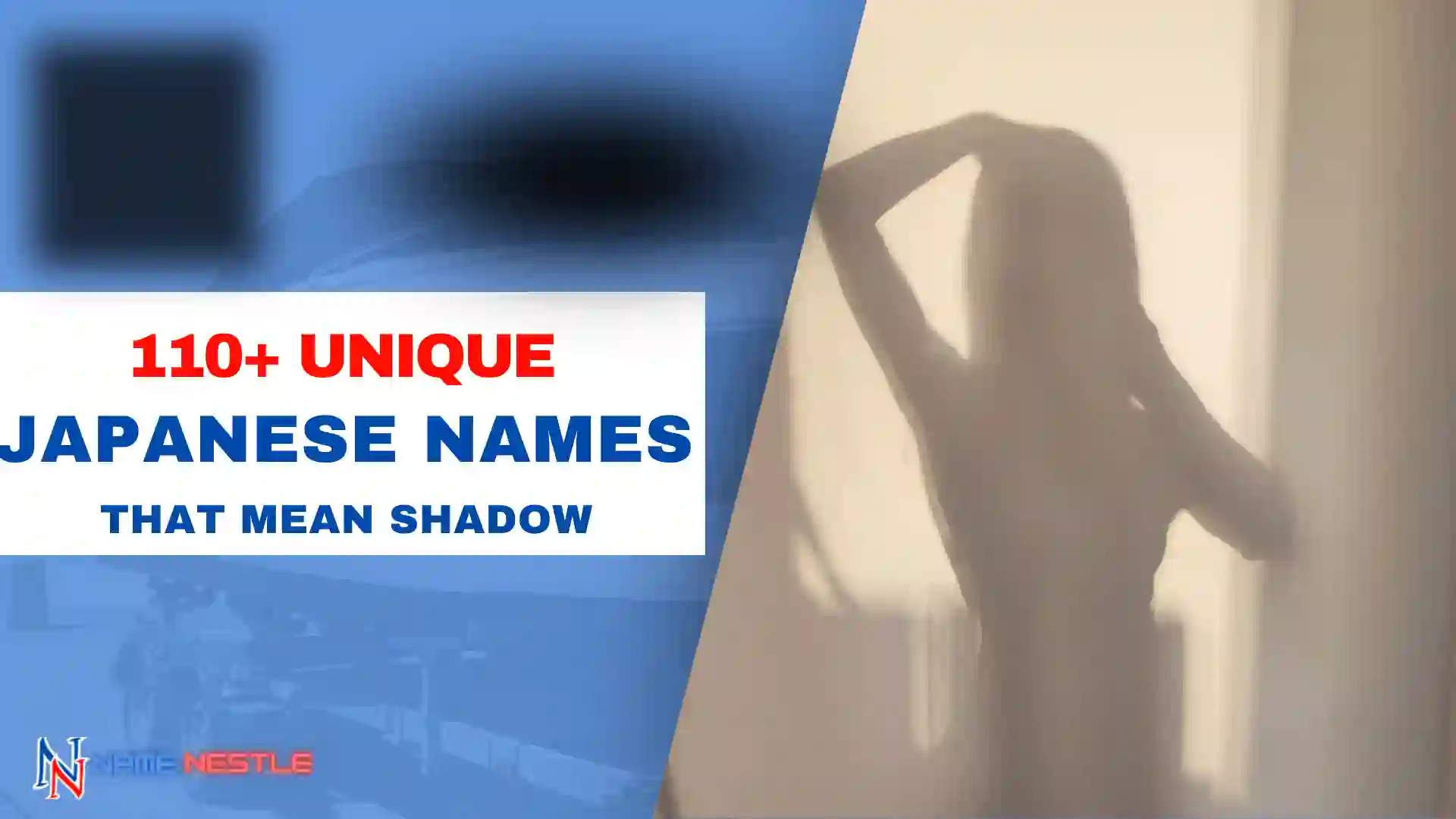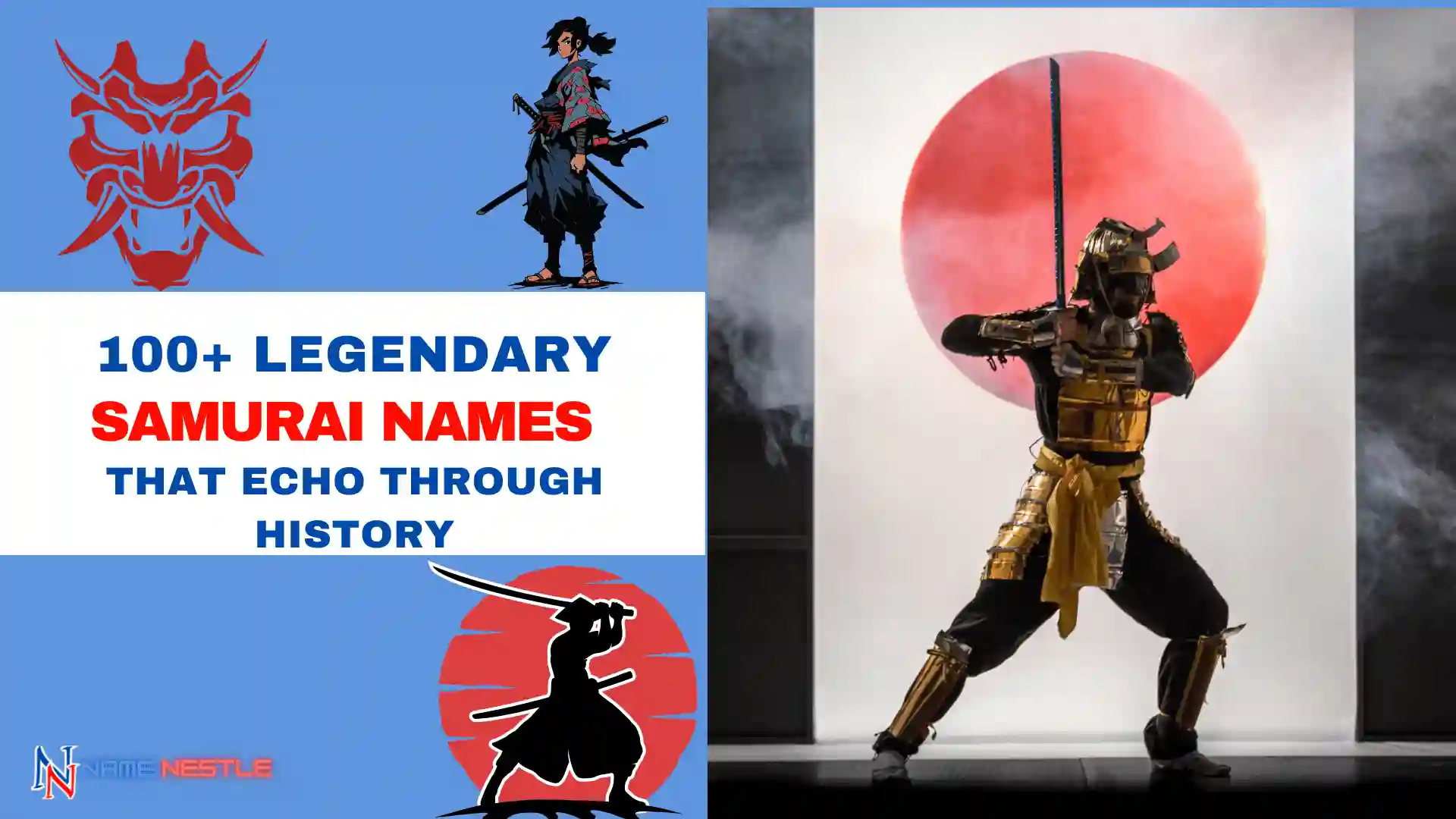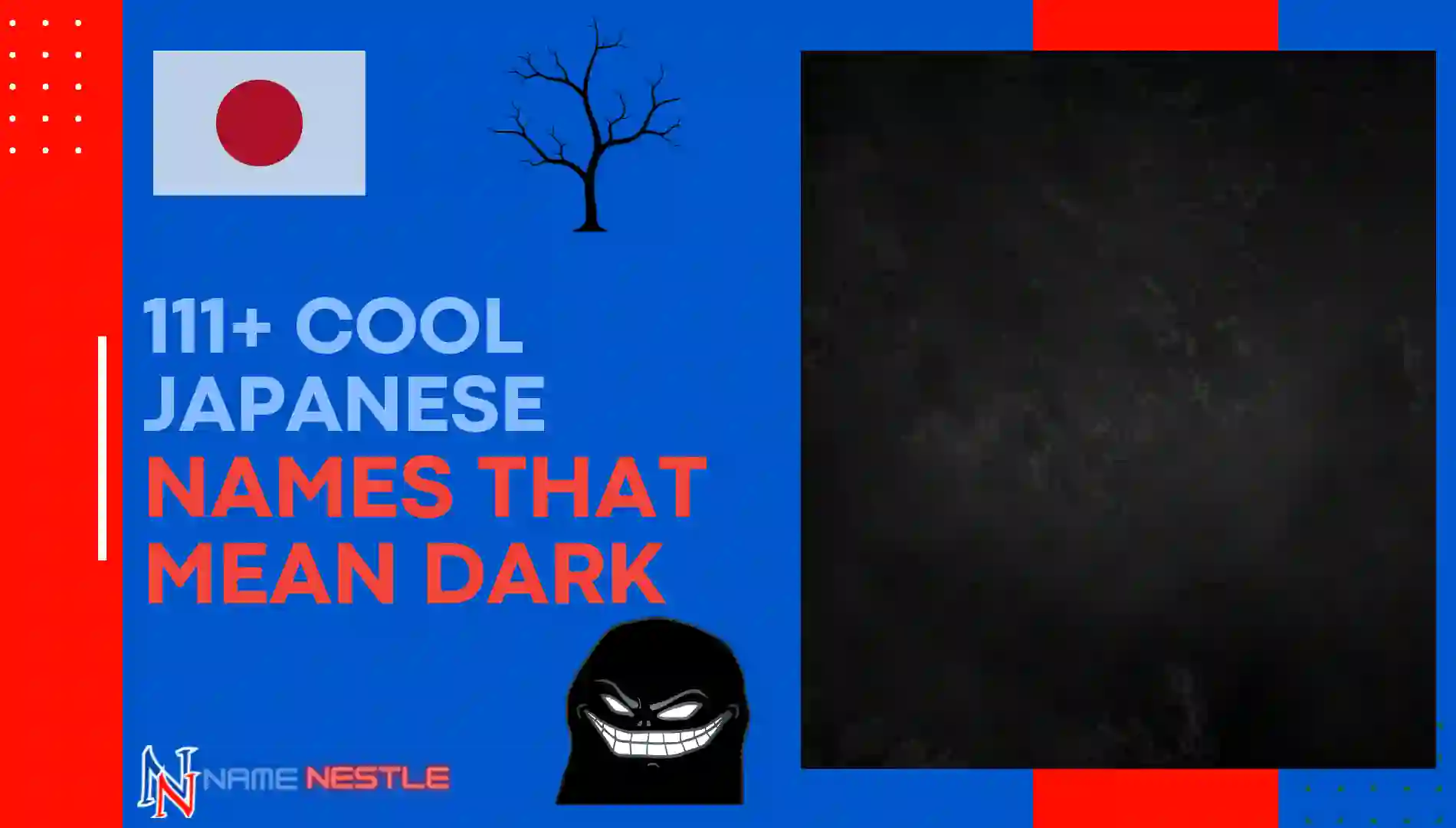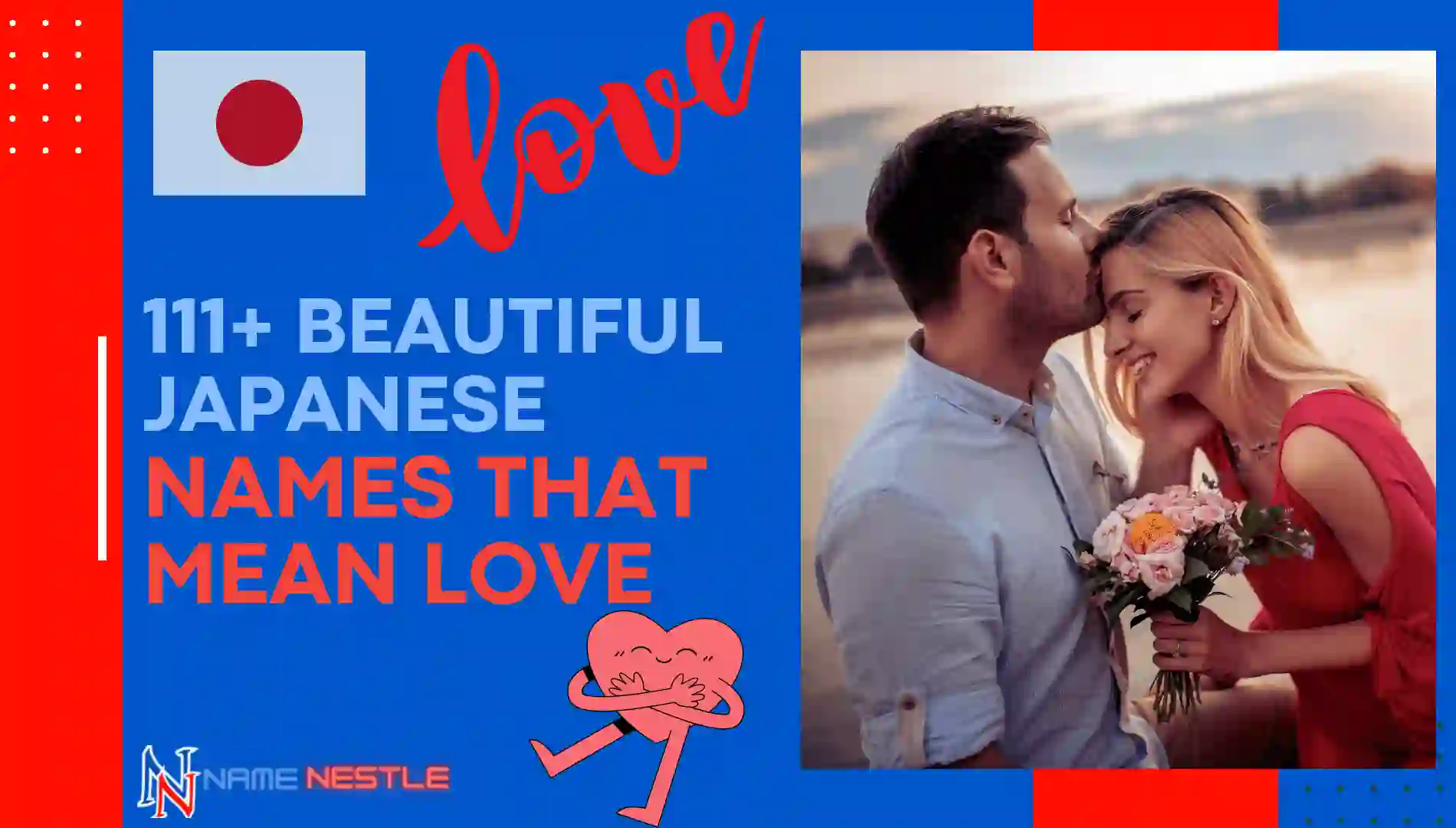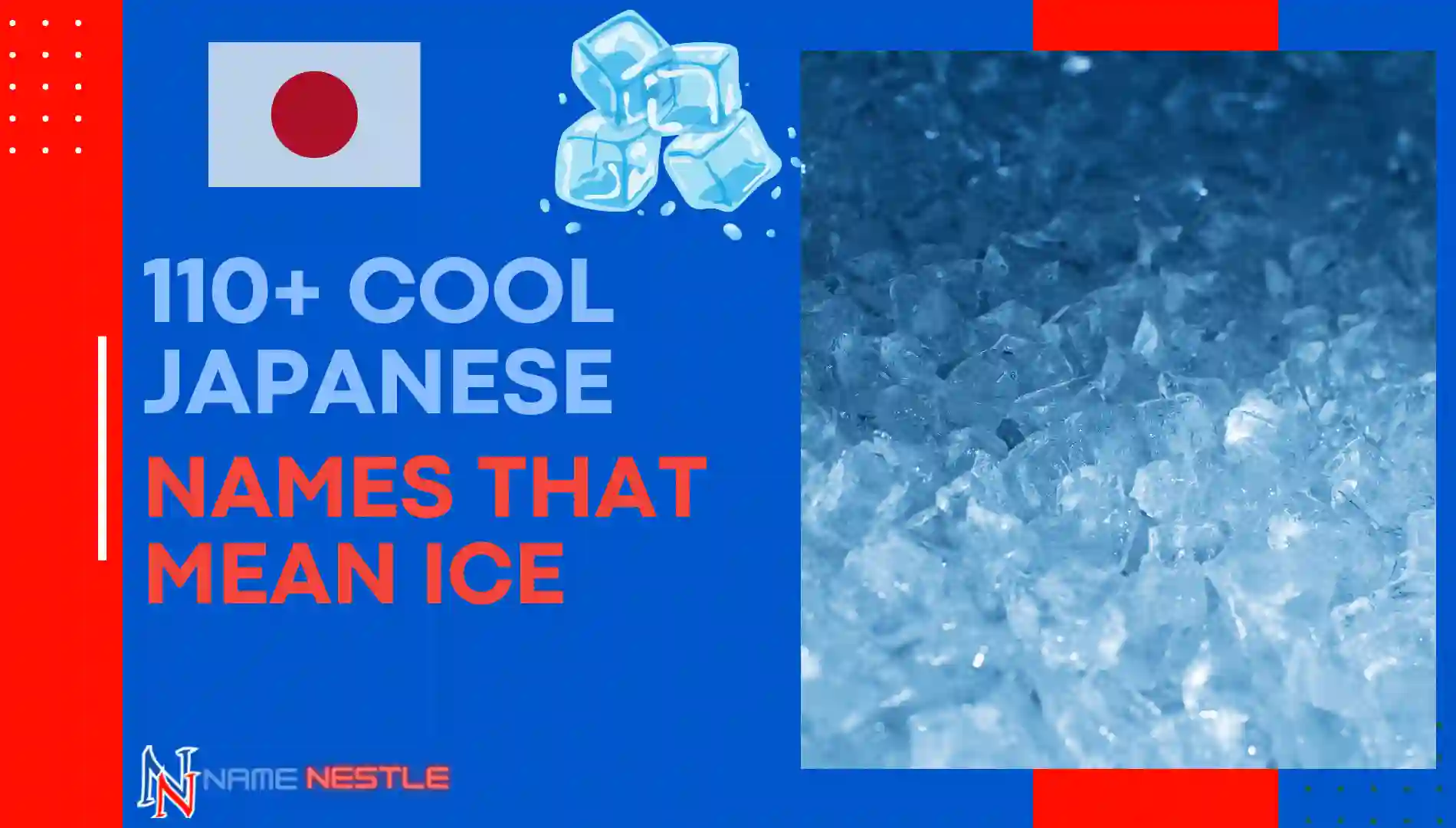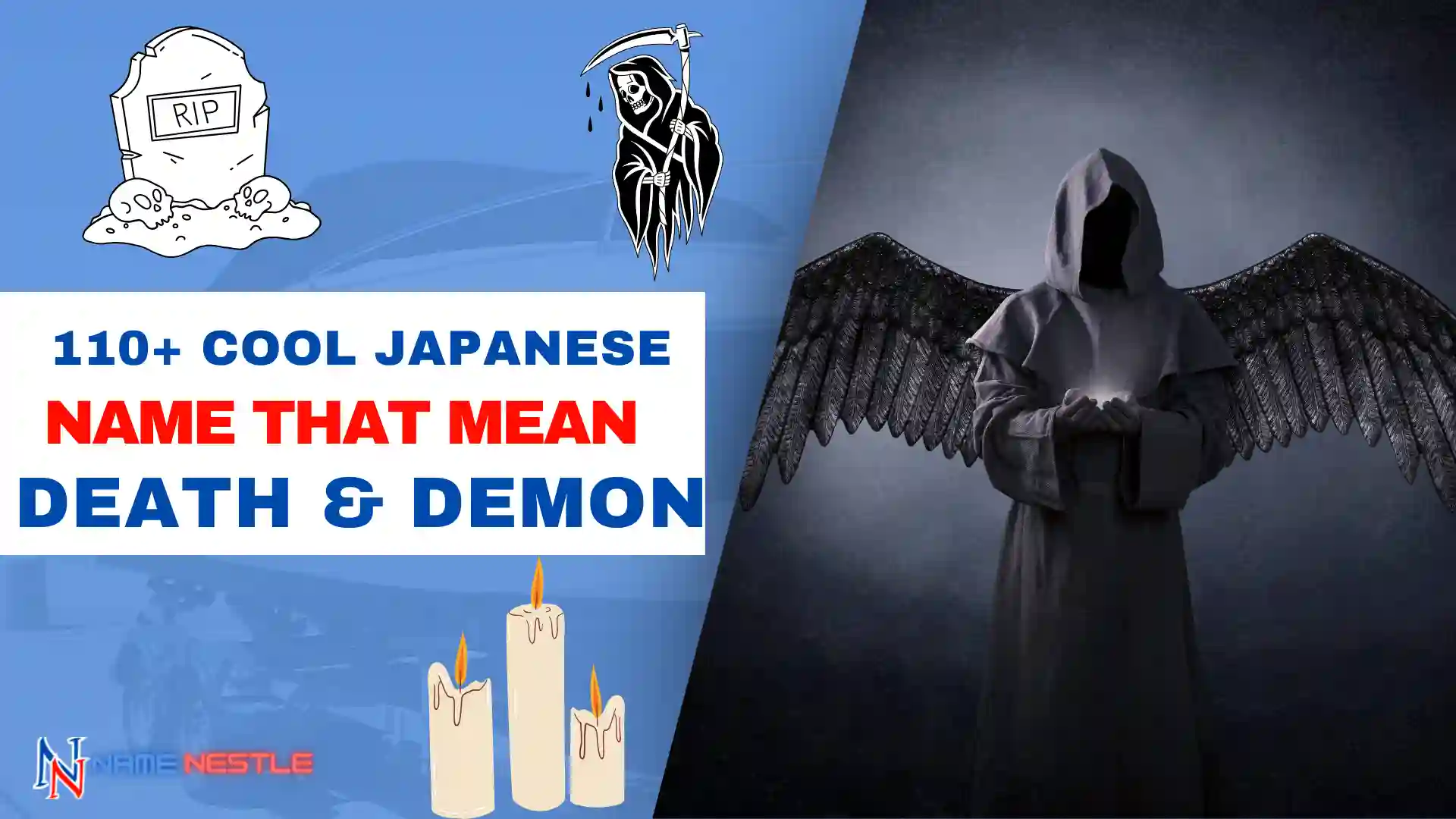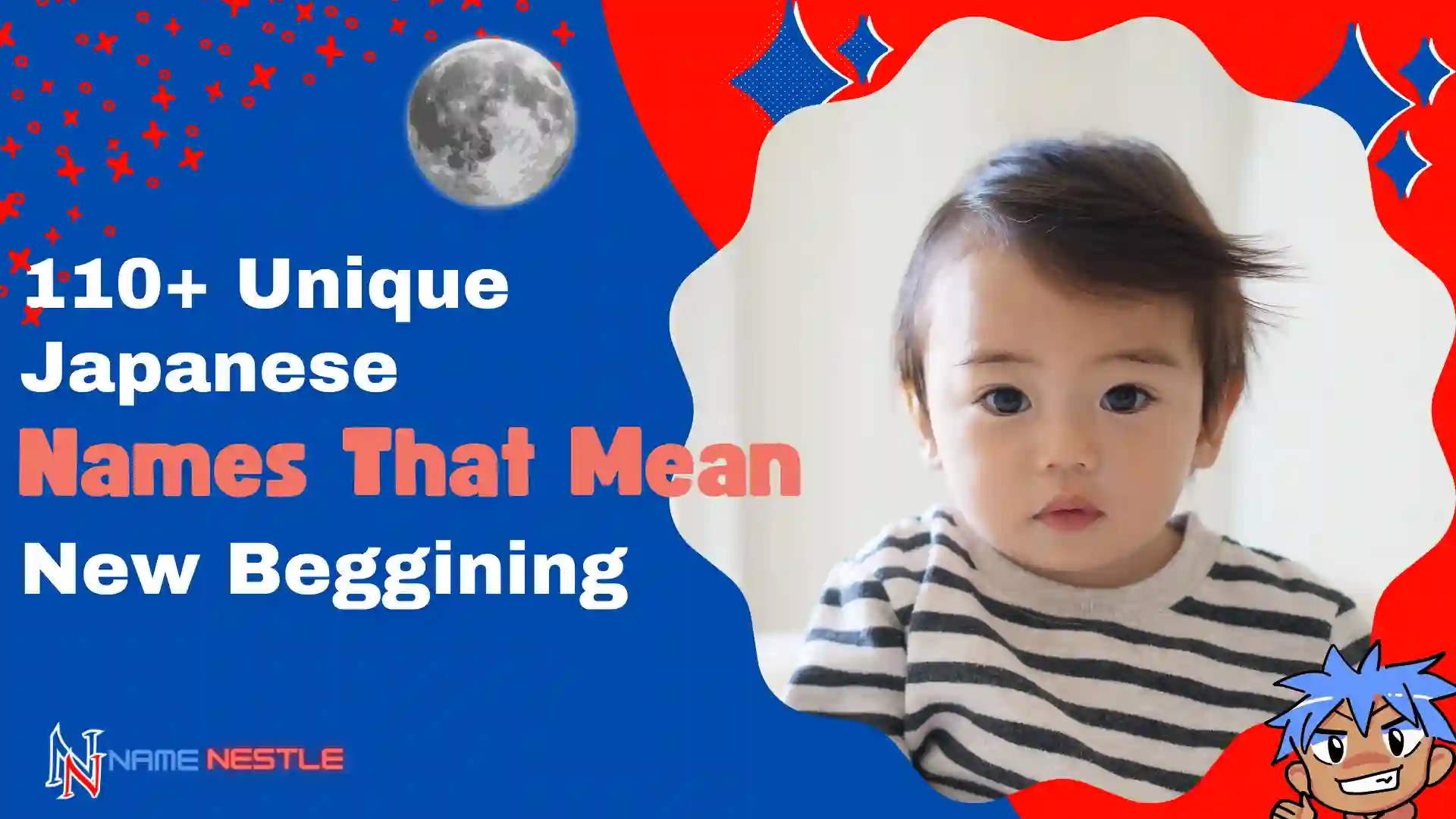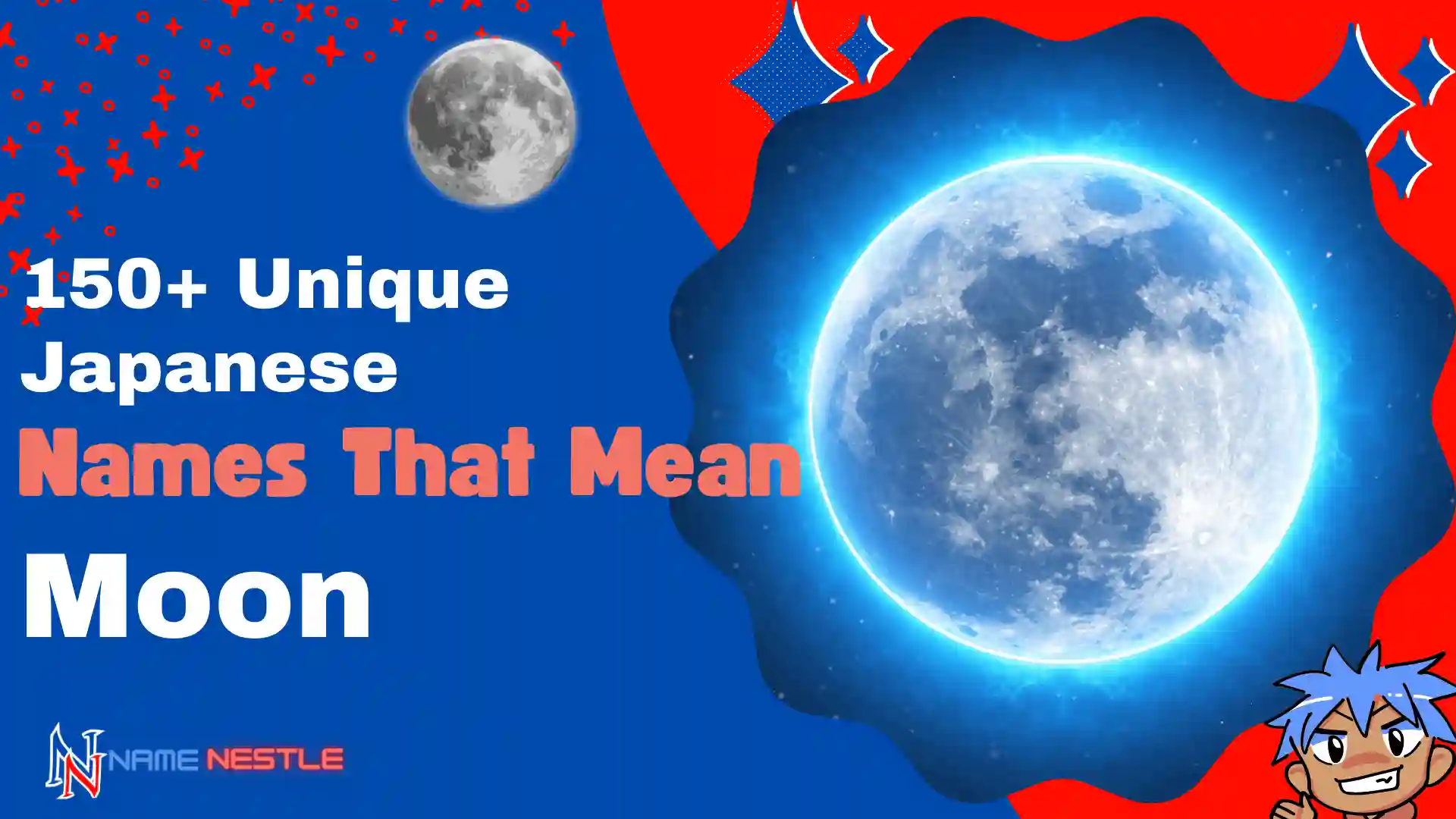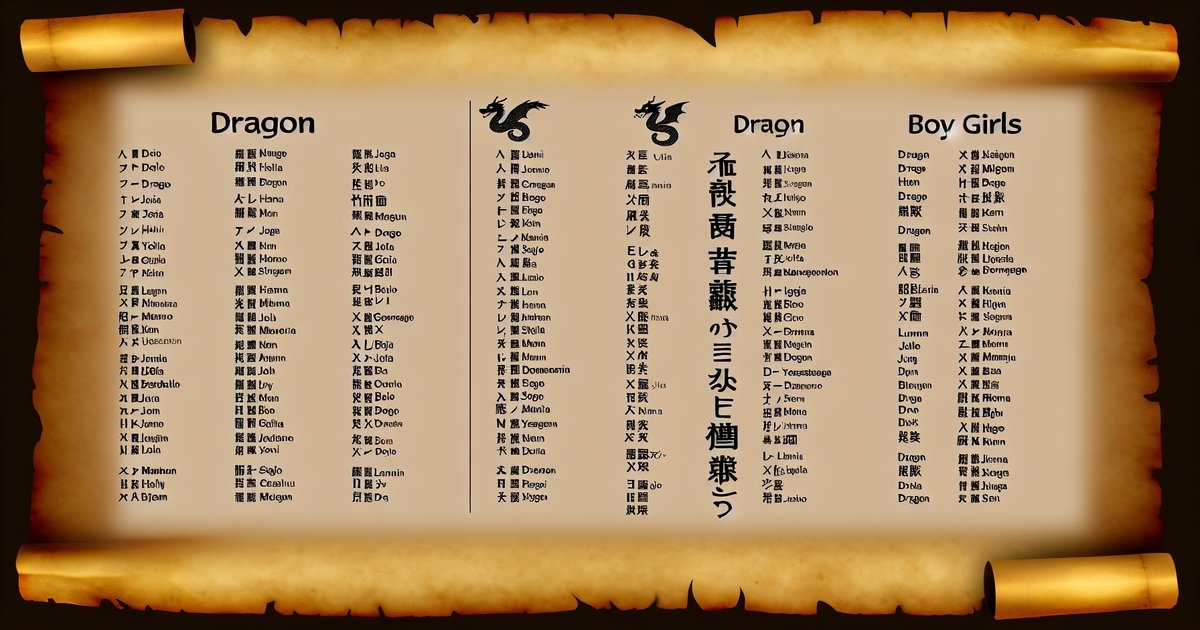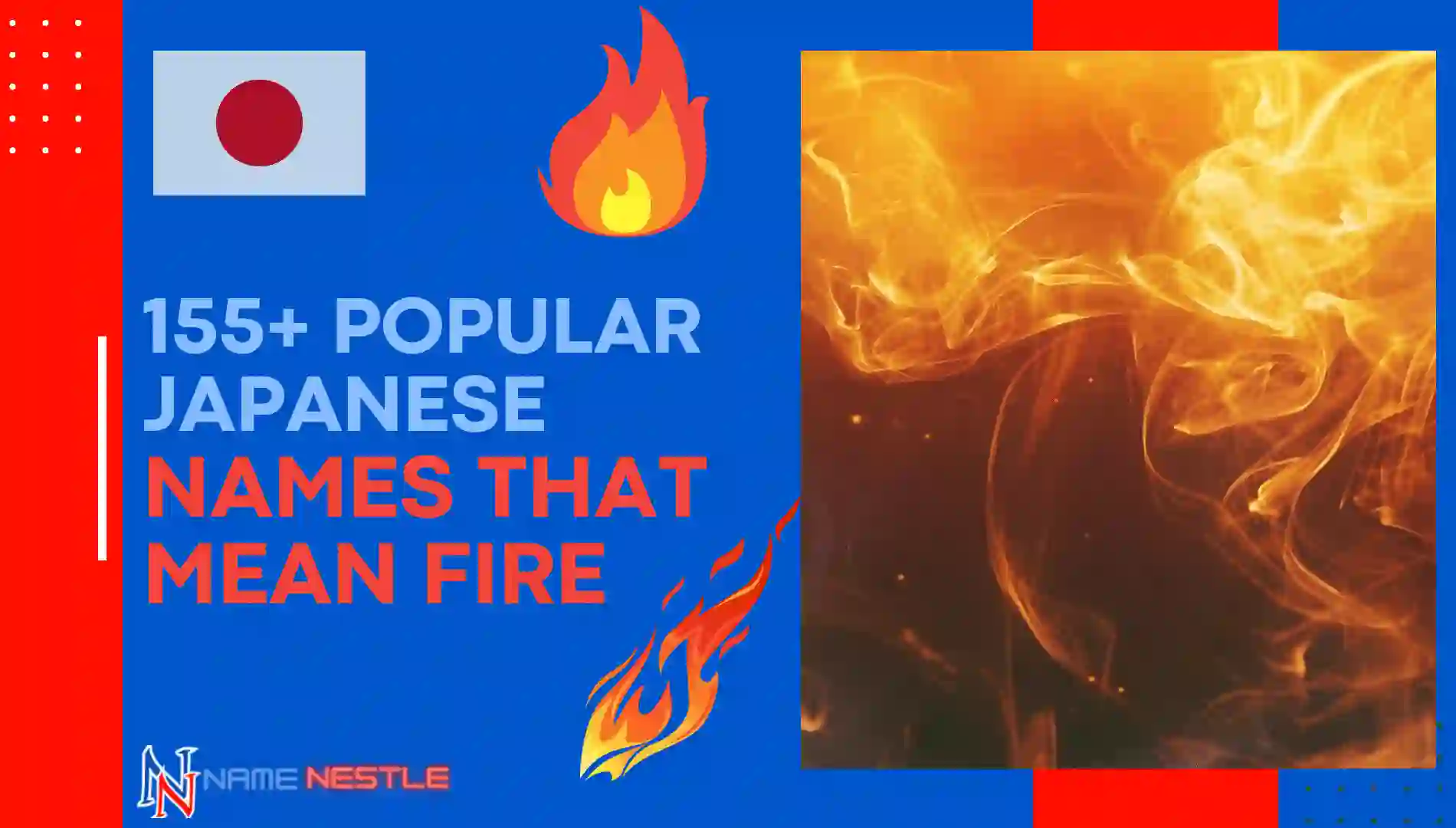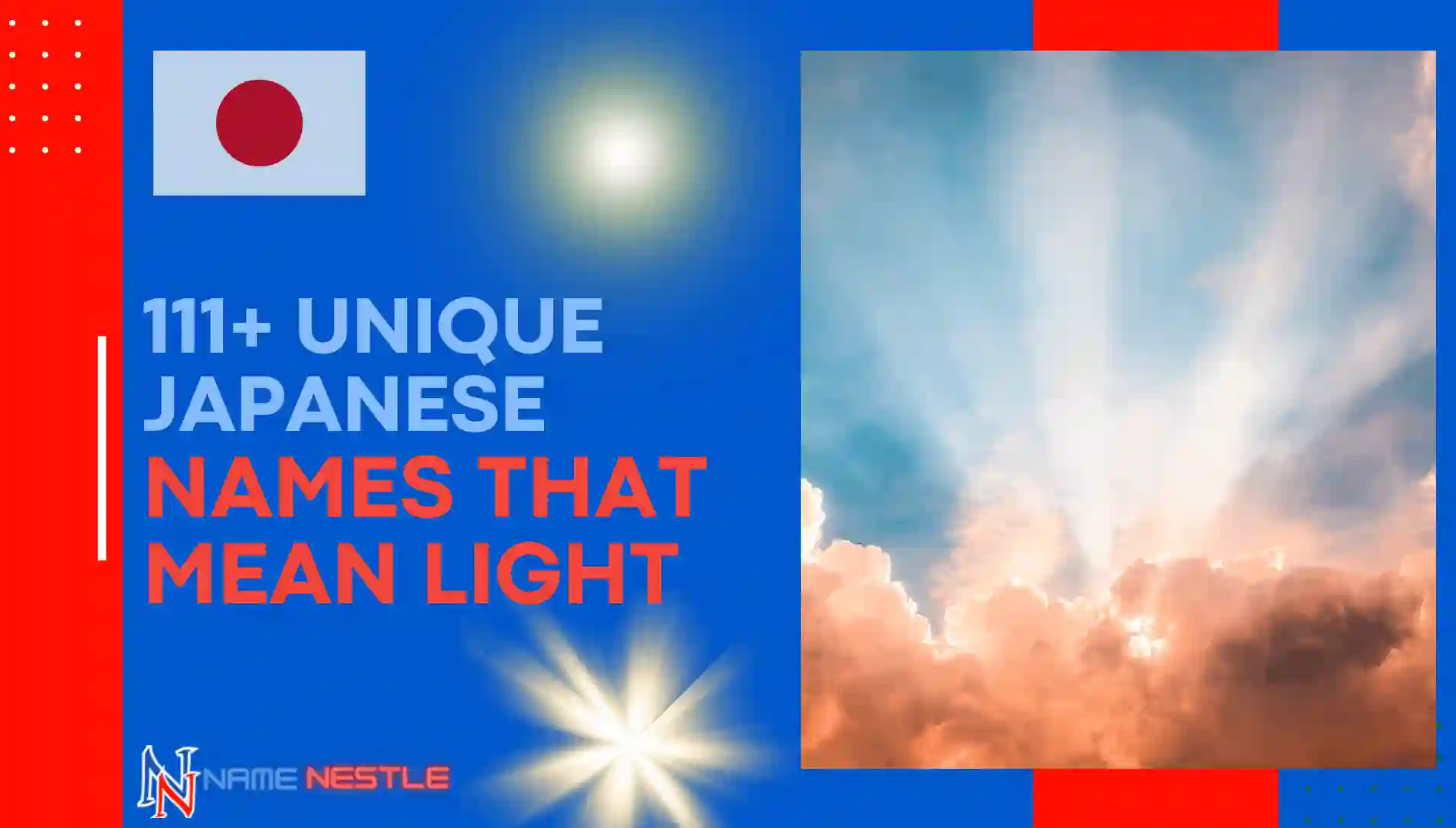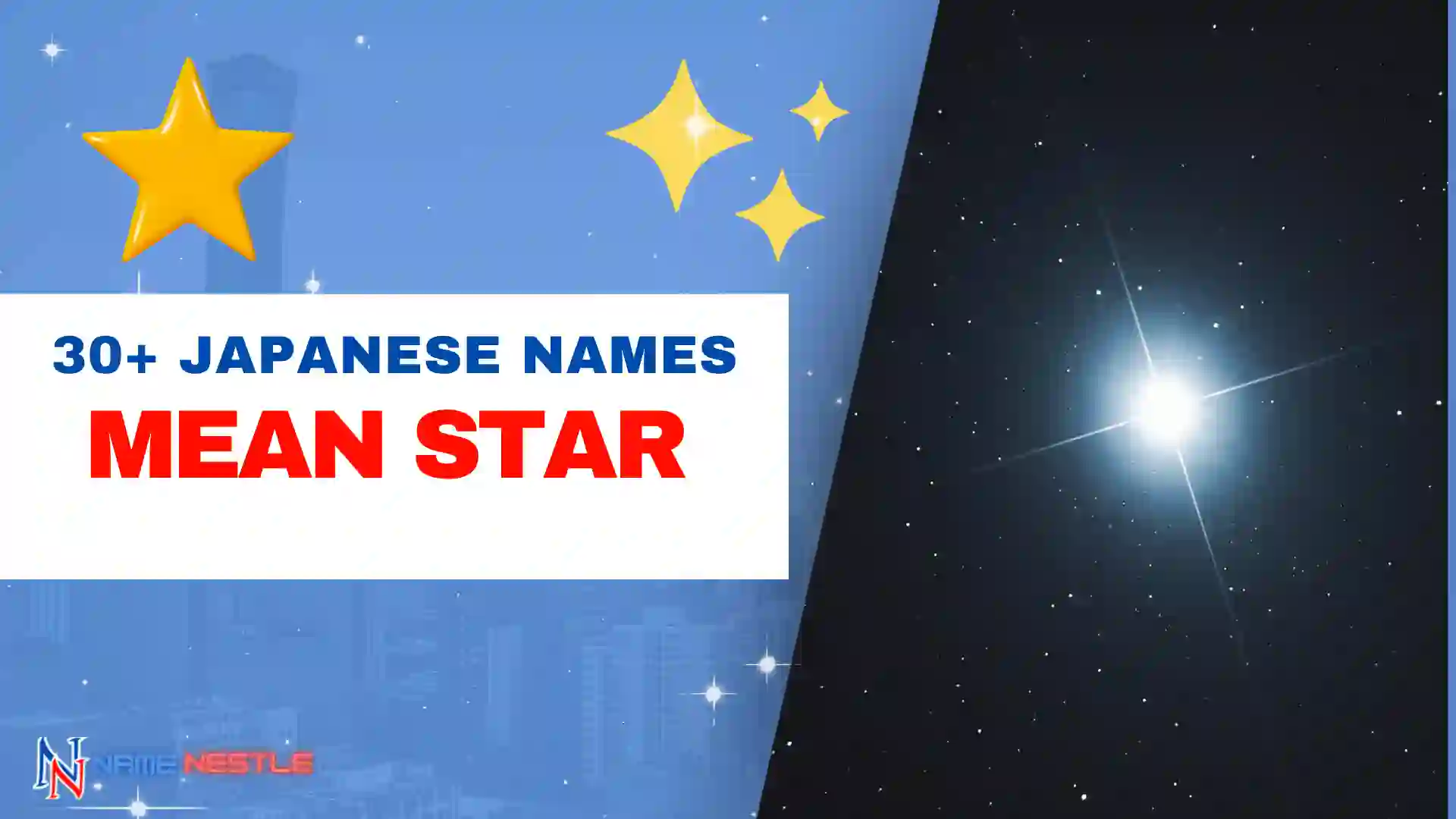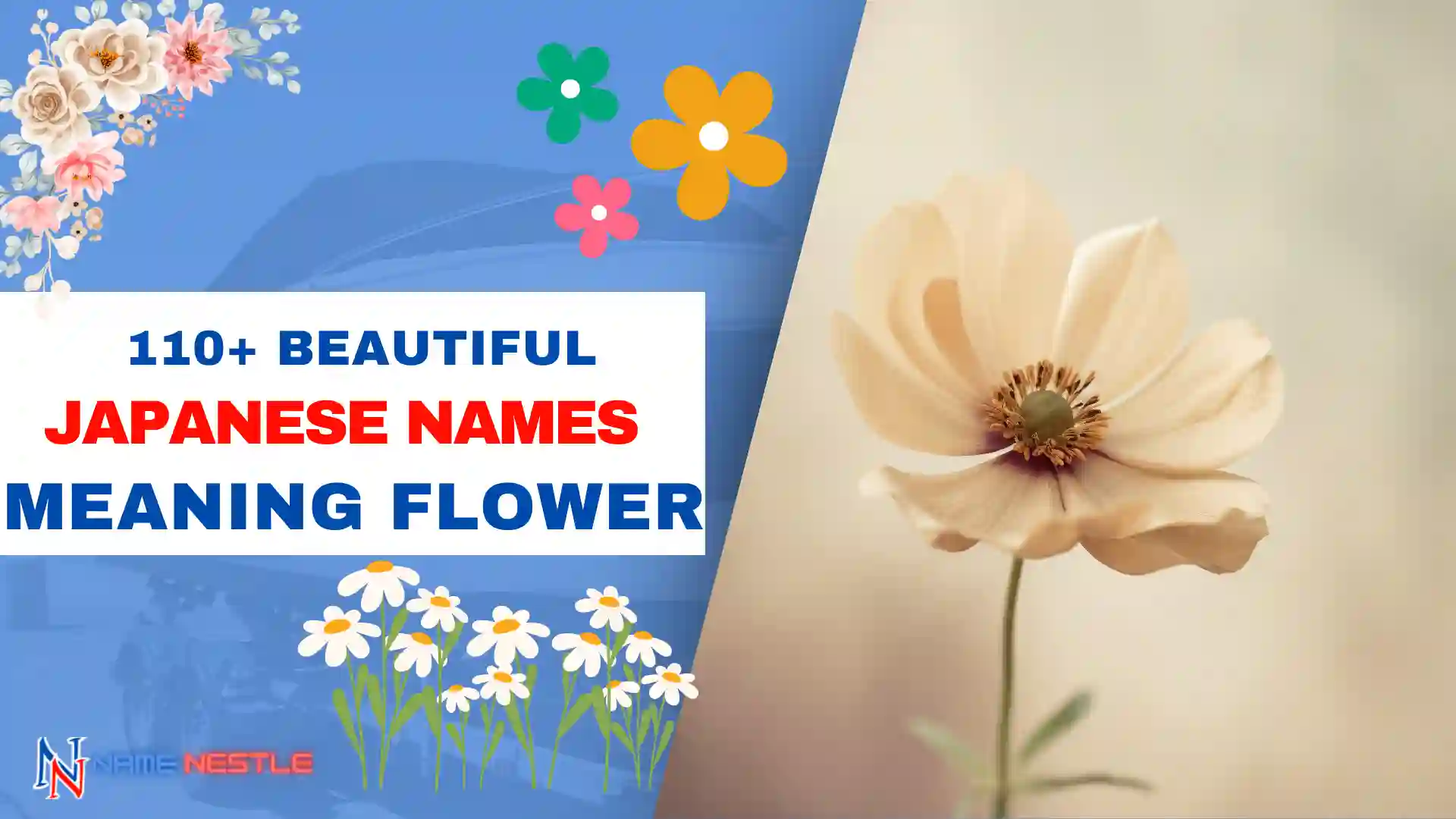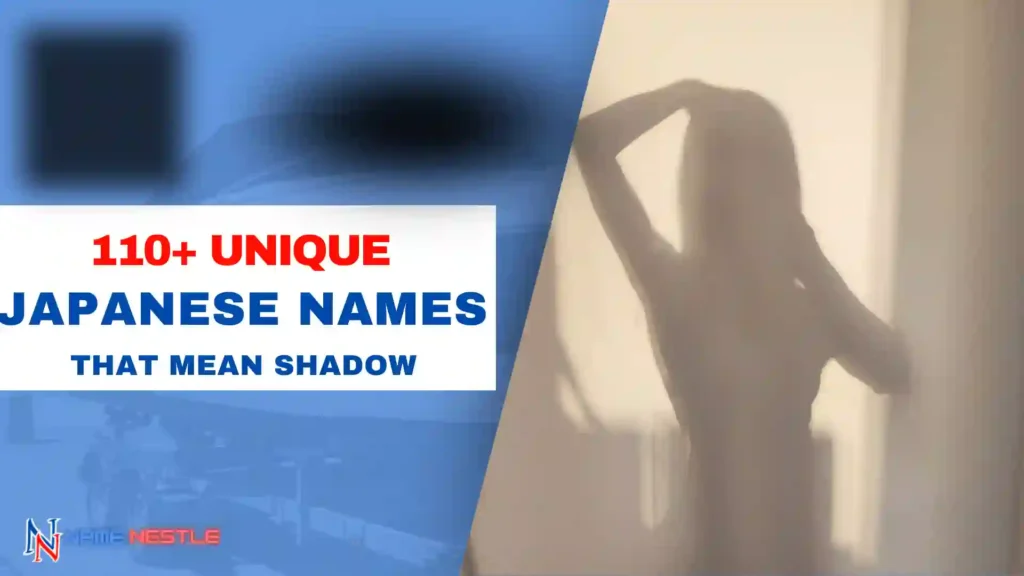
In Japanese culture, names are super meaningful. Parents often pick names for their kids based on traits or values they want them to have. One cool category of Japanese names is all about “shadow.”
Looking for a unique name that’s kind of mysterious? This list is for you! We found over 110 awesome Japanese names that all have to do with shadows. These names aren’t just scary, they can also sound strong and interesting.
Whether you’re looking for a name for a baby, a character, or anything else, there’s something cool here. So come explore the shadows with us and find the perfect name!
best Japanese names that mean shadow
In Japanese culture, names hold deep significance, often reflecting traits, aspirations, or even the mystique of the natural world. “Shadow” is a concept rich with symbolism, representing mystery, depth, and the unseen.
Here, we present 30 best Japanese names that mean shadow, each carrying its own unique essence and aura. From the enigmatic whispers of the night to the silent guardianship of darkness, these names encapsulate the allure and power of shadows.
Yamikage (闇影) – This name signifies the profound darkness that conceals secrets and mysteries within its shadows. Pronunciation: /yah-mee-kah-geh/
Meaning: “Yami” refers to darkness, while “kage” denotes shadow, combining to represent the deep, hidden aspects of existence.
Kurakage (暗影) – Evoking the dim and somber shadows that envelop the world during twilight, this name suggests a sense of quiet mystery and contemplation. Pronunciation: /koo-rah-kah-geh/
Meaning: “Kura” conveys darkness or gloom, while “kage” signifies shadow, portraying the profound depths found within the obscurity of dusk.
Yukikage (幽影) – Symbolizing the ghostly presence of shadows, this name captures the elusive and ethereal nature of darkness. Pronunciation: /yoo-kee-kah-geh/
Meaning: “Yuki” represents ghostly or faint, while “kage” embodies shadow, reflecting the haunting beauty and enigmatic allure of the unseen.
Maborikage (幻影) – Conjuring images of illusions and phantoms, this name suggests the transient and ephemeral essence of shadows. Pronunciation: /mah-boh-ree-kah-geh/
Meaning: “Mabori” denotes illusion or phantom, while “kage” signifies shadow, depicting the fleeting and intangible nature of perception.
Kagetsu (影つ) – Reflecting the passage of time within the shadows, this name embodies the cyclical nature of darkness and light. Pronunciation: /kah-geh-tsoo/
Meaning: “Kage” represents shadow, while “tsu” conveys time or duration, symbolizing the eternal dance between illumination and obscurity.
Kokukage (黒影) – Symbolizing the deep, impenetrable shadows that shroud the night, this name exudes an aura of mystery and power. Pronunciation: /koh-koo-kah-geh/
Meaning: “Koku” signifies black or deep, while “kage” embodies shadow, evoking the profound darkness that envelopes the world in obscurity.
Yamikageki (闇影気) – Conjuring the atmospheric presence of shadows, this name suggests the brooding and ominous aura of darkness. Pronunciation: /yah-mee-kah-geh-kee/
Meaning: “Yami” represents darkness, “kage” symbolizes shadow, and “ki” conveys atmosphere or mood, depicting the palpable essence of obscurity.
Oborokage (朧影) – Evoking the hazy and indistinct shadows that linger on the edge of perception, this name suggests a sense of elusive beauty and mystery. Pronunciation: /oh-boh-roh-kah-geh/
Meaning: “Oboro” signifies faint or hazy, while “kage” embodies shadow, portraying the subtle and enigmatic aspects of existence.
Shinkage (真影) – Symbolizing the true essence or core of shadows, this name exudes a sense of purity and clarity within the darkness. Pronunciation: /sheen-kah-geh/
Meaning: “Shin” conveys truth or essence, while “kage” represents shadow, depicting the unadulterated and authentic nature of obscurity.
Ayakage (妖影) – Conjuring images of mystical and enchanting shadows, this name suggests a sense of otherworldly beauty and allure. Pronunciation: /ah-yah-kah-geh/
Meaning: “Aya” represents bewitching or enchanting, while “kage” embodies shadow, portraying the captivating and mesmerizing aspects of darkness.
Kurumakage (車影) – Reflecting the fleeting shadows cast by passing vehicles, this name evokes the transient and dynamic nature of obscurity. Pronunciation: /koo-roo-mah-kah-geh/
Meaning: “Kuruma” signifies vehicle or car, while “kage” denotes shadow, depicting the ephemeral and ever-changing aspect of darkness.
Kagehikari (影光) – Symbolizing the interplay between shadows and light, this name embodies the delicate balance and harmony found within contrasts. Pronunciation: /kah-geh-hee-kah-ree/
Meaning: “Kage” represents shadow, while “hikari” conveys light, symbolizing the complementary forces that define existence.
Kageshoku (影色) – Conjuring images of the myriad hues and shades found within shadows, this name exudes a sense of depth and complexity within darkness. Pronunciation: /kah-geh-shoh-koo/
Meaning: “Kage” embodies shadow, while “shoku” signifies color, portraying the rich and nuanced palette that defines obscurity.
Yamikageri (闇影理) – Reflecting the rational and logical aspects of shadows, this name suggests an analytical and contemplative approach to darkness. Pronunciation: /yah-mee-kah-geh-ree/
Meaning: “Yami” conveys darkness, “kage” represents shadow, and “ri” signifies reason or logic, depicting the intellectual exploration of obscurity.
Kagehimei (影秘め) – Evoking the hidden and concealed aspects of shadows, this name suggests a sense of mystery and intrigue lurking within darkness. Pronunciation: /kah-geh-hee-meh/
Meaning: “Kage” embodies shadow, while “himei” signifies secret or hidden, portraying the enigmatic depths that lie beneath the surface of obscurity.
Yureikage (揺れ影) – Symbolizing the flickering and wavering shadows cast by flames or flickering light, this name exudes a sense of dynamic movement and energy. Pronunciation: /yoo-reh-ee-kah-geh/
Meaning: “Yurei” signifies to sway or flicker, while “kage” embodies shadow, depicting the ever-shifting and ephemeral nature of obscurity.
Kageishi (影医師) – Reflecting the healing and therapeutic aspects of shadows, this name suggests a sense of comfort and solace found within darkness. Pronunciation: /kah-geh-ee-shee/
Meaning: “Kage” represents shadow, while “ishi” conveys doctor or healer, symbolizing the soothing and nurturing qualities of obscurity.
Must Read: 111+ Cool Japanese Names that Mean Dark
Japanese names that mean “shadow,”
In Japanese culture, names often carry deep meanings, reflecting aspects of nature, emotions, or even abstract concepts like shadows. A name that means “shadow” can convey mystery, depth, or a sense of hidden strength. Below are 30 Japanese names that mean “shadow,” each accompanied by its pronunciation and a description of its meaning.
- Kageki (影気) – Evokes the ethereal presence or spirit of shadows.
- Pronunciation: kah-geh-kee
- Meaning: Derived from “kage” meaning “shadow” and “ki” meaning “spirit,” Kageki signifies the mystical and enigmatic essence of shadows, hinting at a profound connection to the unseen.
- Kumori (曇り) – Represents the obscured or partially hidden nature of shadows.
- Pronunciation: koo-moh-ree
- Meaning: Reflecting the concept of shadows veiling light, Kumori symbolizes the subtle interplay between darkness and illumination, suggesting hidden potential.
- Kokumori (こくもり) – Conveys the deep, profound darkness of shadows.
- Pronunciation: koh-koo-moh-ree
- Meaning: Combining “koku” meaning “deep” and “kumori” meaning “shadow,” Kokumori portrays the profound depths and mysteries concealed within shadows, hinting at unseen strength.
- Yami (闇) – Represents the darkness and obscurity inherent in shadows.
- Pronunciation: yah-mee
- Meaning: Directly translating to “darkness,” Yami embodies the mysterious and enveloping nature of shadows, suggesting both danger and allure.
- Ankoku (暗黒) – Signifies the deep, impenetrable darkness of shadows.
- Pronunciation: ahn-koh-koo
- Meaning: Composed of “an” meaning “dark” or “obscure” and “koku” meaning “black,” Ankoku epitomizes the impenetrable darkness that shadows can cast, hinting at hidden strength and resilience.
- Kuragari (暗がり) – Represents the dim, shadowy places.
- Pronunciation: koo-rah-gah-ree
- Meaning: Evoking the dimly lit corners and obscure realms where shadows dwell, Kuragari suggests mystery and intrigue, drawing attention to the unseen aspects of existence.
- Kagehikari (影光) – Symbolizes the interplay between shadows and light.
- Pronunciation: kah-geh-hee-kah-ree
- Meaning: Blending “kage” meaning “shadow” and “hikari” meaning “light,” Kagehikari embodies the delicate balance and harmony between darkness and illumination, suggesting hidden beauty within shadows.
- Shurui (しゅるい) – Conveys the diverse and multifaceted nature of shadows.
- Pronunciation: shoo-roo-ee
- Meaning: Reflecting the varied forms and expressions of shadows, Shurui suggests diversity and complexity, hinting at the myriad shades and nuances within darkness.
- Kuroi (黒い) – Signifies the deep, intense blackness of shadows.
- Pronunciation: koo-roh-ee
- Meaning: Simply translating to “black,” Kuroi encapsulates the profound darkness and depth inherent in shadows, suggesting strength and resilience in the face of obscurity.
- Yūrei (幽霊) – Evokes the ghostly and ethereal aspects of shadows.
- Pronunciation: yoo-ray
- Meaning: Combining “yuu” meaning “faint” or “dim” and “rei” meaning “spirit” or “ghost,” Yūrei conjures the ghostly and otherworldly essence of shadows, hinting at the unseen realms beyond perception.
- Yamikage (闇影) – Represents the shadowy silhouette cast by darkness.
- Pronunciation: yah-mee-kah-geh
- Meaning: Fusion of “yami” meaning “darkness” and “kage” meaning “shadow,” Yamikage embodies the ominous and mysterious silhouette created by deep shadows, suggesting hidden potential or danger lurking within.
- Kageshō (影象) – Symbolizes the impression or image created by shadows.
- Pronunciation: kah-geh-shoh
- Meaning: Blending “kage” meaning “shadow” and “shō” meaning “image” or “impression,” Kageshō captures the visual impact and lasting impression left by shadows, hinting at their evocative and transformative nature.
- Ankō (暗行) – Conveys the mysterious and enigmatic movements of shadows.
- Pronunciation: ahn-koh
- Meaning: Composed of “an” meaning “dark” or “obscure” and “kō” meaning “motion” or “movement,” Ankō evokes the stealthy and elusive nature of shadows, suggesting hidden intentions or unseen actions.
- Kurayami (暗闇) – Signifies the profound and enveloping darkness of shadows.
- Pronunciation: koo-rah-yah-mee
- Meaning: Combining “kura” meaning “deep” or “profound” and “yami” meaning “darkness,” Kurayami embodies the deep, impenetrable darkness that shadows can cast, hinting at hidden depths and mysteries.
- Kagetsu (影月) – Represents the shadowy allure of the moon.
- Pronunciation: kah-geh-tsoo
- Meaning: Fusion of “kage” meaning “shadow” and “getsu” meaning “moon,” Kagetsu embodies the mystical connection between shadows and the moon, suggesting a blend of darkness and ethereal beauty.
- Yūkage (幽影) – Evokes the subtle and ghostly presence of shadows.
- Pronunciation: yoo-kah-geh
- Meaning: Merging “yū” meaning “faint” or “dim” and “kage” meaning “shadow,” Yūkage conjures the ghostly and ephemeral nature of shadows, hinting at their elusive and transient existence.
- Kurogami (黒紙) – Symbolizes the deep, velvety darkness of shadows.
- Pronunciation: koo-roh-gah-mee
- Meaning: Blending “kuro” meaning “black” and “kami” meaning “paper,” Kurogami captures the rich, velvety darkness akin to black paper, suggesting depth and texture within shadows.
- Ankokuu (暗黒雨) – Conveys the oppressive and suffocating darkness of shadows.
- Pronunciation: ahn-koh-koo
- Meaning: Combining “an” meaning “dark” or “obscure” and “kokuu” meaning “dark rain” or “downpour,” Ankokuu embodies the overwhelming and suffocating presence of shadows, hinting at hidden dangers or struggles.
- Kagebō (影暴) – Represents the imposing and dominating presence of shadows.
- Pronunciation: kah-geh-boh
- Meaning: Fusion of “kage” meaning “shadow” and “bō” meaning “violent” or “forceful,” Kagebō embodies the overwhelming and dominating power of shadows, hinting at their ability to obscure and overshadow.
- Kuraiashi (暗い足) – Signifies the dark and stealthy movements of shadows.
- Pronunciation: koo-rah-ee-ah-shee
- Meaning: Combining “kurai” meaning “dark” and “ashi” meaning “foot” or “movement,” Kuraiashi evokes the stealthy and mysterious movements of shadows, hinting at hidden intentions or unseen actions.
- Kagehato (影羽戸) – Represents the shadowy gateway or portal.
- Pronunciation: kah-geh-hah-toh
- Meaning: Combining “kage” meaning “shadow,” “ha” meaning “feather” or “wing,” and “to” meaning “door” or “gate,” Kagehato symbolizes the mysterious and enigmatic gateway that shadows create, hinting at hidden realms beyond.
- Yamitobira (闇扉) – Evokes the dark and mysterious doorway of shadows.
- Pronunciation: yah-mee-toh-bee-rah
- Meaning: Fusion of “yami” meaning “darkness” and “tobira” meaning “door” or “gateway,” Yamitobira embodies the obscure and enigmatic doorway that shadows form, suggesting hidden passages or secrets.
- Kurobira (黒扉) – Signifies the deep and impenetrable doorway of shadows.
- Pronunciation: koo-roh-bee-rah
- Meaning: Combining “kuro” meaning “black” and “tobira” meaning “door” or “gateway,” Kurobira represents the profound darkness and depth of the doorway created by shadows, hinting at hidden mysteries or revelations.
- Ankakaimon (暗火門) – Conveys the dark and mysterious gate of shadows.
- Pronunciation: ahn-kah-kah-ee-mohn
- Meaning: Composed of “an” meaning “dark” or “obscure,” “ka” meaning “fire,” and “mon” meaning “gate” or “portal,” Ankakaimon embodies the mysterious and foreboding gate that shadows form
Must Read: 110+ Beautiful Japanese Names That Mean New Beginning
Japanese Girl Names That Mean Shadow
Japanese culture is rich with symbolism, and names often carry deep meanings reflecting various aspects of life. “Shadow” is a captivating theme, embodying mystery, depth, and sometimes even protection. Below are 30 Japanese girl names that carry the essence of shadows, each with its unique pronunciation and a long, easy-to-read explanation of its meaning.
- Kagetsume (影爪)
- Pronunciation: kah-geh-tsu-meh
- Meaning: This name combines “kage” meaning shadow and “tsume” meaning claw. It symbolizes the quiet strength and subtle fierceness often associated with shadows, like the sharp claws hidden in the darkness, ready to defend what is dear.
- Kageko (影子)
- Pronunciation: kah-geh-koh
- Meaning: “Kageko” blends “kage” meaning shadow and “ko” meaning child. It suggests the innocence and purity found within the depths of darkness, akin to a child’s gentle curiosity exploring the unknown.
- Kageshizu (影静)
- Pronunciation: kah-geh-shee-zoo
- Meaning: “Kageshizu” combines “kage” meaning shadow and “shizu” meaning quiet. It evokes the serene tranquility often felt in the presence of shadows, where peace and stillness reign supreme.
- Kagetsuki (影月)
- Pronunciation: kah-geh-tsoo-kee
- Meaning: This name merges “kage” meaning shadow and “tsuki” meaning moon. It represents the enchanting dance between light and shadow, reminiscent of the moon casting its mysterious glow upon the earth.
- Kagehana (影花菜)
- Pronunciation: kah-geh-hah-nah
- Meaning: “Kagehana” combines “kage” meaning shadow and “hana” meaning flower, with “na” suggesting greens. It symbolizes the delicate beauty that thrives even in the darkest corners, akin to a flower blooming amidst shadows and leaves.
- Kagesora (影空)
- Pronunciation: kah-geh-soh-rah
- Meaning: “Kagesora” blends “kage” meaning shadow and “sora” meaning sky. It reflects the vast expanse of the heavens, where shadows dance freely amidst the clouds, painting ever-changing patterns across the celestial canvas.
- Kageumi (影海)
- Pronunciation: kah-geh-oo-mee
- Meaning: This name combines “kage” meaning shadow and “umi” meaning sea. It embodies the depth and mystery of the ocean depths, where shadows play hide-and-seek amidst the shifting tides.
- Kagemizu (影水)
- Pronunciation: kah-geh-mee-zoo
- Meaning: “Kagemizu” merges “kage” meaning shadow and “mizu” meaning water. It symbolizes the fluid nature of shadows, flowing like water and adapting to the contours of their surroundings.
- Kagehikari (影光)
- Pronunciation: kah-geh-hee-kah-ree
- Meaning: “Kagehikari” combines “kage” meaning shadow and “hikari” meaning light. It represents the delicate balance between light and shadow, where each enhances the beauty and depth of the other.
- Kageyuki (影雪)
- Pronunciation: kah-geh-yoo-kee
- Meaning: This name blends “kage” meaning shadow and “yuki” meaning snow. It evokes the quiet serenity of a snowy landscape, where shadows stretch long across the pristine white canvas.
- Kagemori (影守)
- Pronunciation: kah-geh-moh-ree
- Meaning: “Kagemori” merges “kage” meaning shadow and “mori” meaning forest. It symbolizes the protective embrace of the forest shadows, where ancient trees stand as silent sentinels guarding their domain.
- Kagehana (影花)
- Pronunciation: kah-geh-hah-nah
- Meaning: This name combines “kage” meaning shadow and “hana” meaning flower. It represents the ephemeral beauty found in the fleeting moments of sunlight filtering through the canopy, casting delicate floral shadows upon the forest floor.
- Kagekaze (影風)
- Pronunciation: kah-geh-kah-zeh
- Meaning: “Kagekaze” blends “kage” meaning shadow and “kaze” meaning wind. It embodies the elusive nature of shadows, as they twist and swirl with the ever-changing winds, leaving traces of their presence in their wake.
- Kageyume (影夢)
- Pronunciation: kah-geh-yoo-meh
- Meaning: This name combines “kage” meaning shadow and “yume” meaning dream. It symbolizes the mysterious realm of dreams, where shadows dance freely, weaving intricate tapestries of the subconscious mind.
- Kagetsubasa (影翼)
- Pronunciation: kah-geh-tsu-bah-sah
- Meaning: “Kagetsubasa” merges “kage” meaning shadow and “tsubasa” meaning wings. It represents the freedom and grace of shadows, as they spread their wings and soar through the boundless expanse of the night sky.
- Kagehashi (影橋)
- Pronunciation: kah-geh-hah-shee
- Meaning: This name combines “kage” meaning shadow and “hashi” meaning bridge. It symbolizes the connection between worlds, where shadows serve as the silent guardians bridging the gap between light and darkness.
- Kagetama (影珠)
- Pronunciation: kah-geh-tah-mah
- Meaning: “Kagetama” blends “kage” meaning shadow and “tama” meaning jewel. It represents the hidden treasures found within the depths of darkness, shining like precious jewels amidst the shadows.
- Kagehane (影羽)
- Pronunciation: kah-geh-hah-neh
- Meaning: This name combines “kage” meaning shadow and “hane” meaning feather. It symbolizes the ethereal beauty of shadows, as they flutter and drift like delicate feathers upon the breath of the wind.
- Kagemizu (影水)
- Pronunciation: kah-geh-mee-zoo
- Meaning: “Kagemizu” merges “kage” meaning shadow and “mizu” meaning water. It symbolizes the fluid nature of shadows, flowing like water and adapting to the contours of their surroundings.
- Kageshizuku (影雫)
- Pronunciation: kah-geh-shee-zoo-koo
- Meaning: This name combines “kage” meaning shadow and “shizuku” meaning droplet. It evokes the gentle patter of raindrops upon the earth, creating ripples of shadow that dance in harmony with the falling rain.
Must Read: 150+ Unique Japanese Names That Mean Moon
Japanese Boy Names That Mean Shadow
Japanese names often carry profound meanings, reflecting various aspects of nature, emotions, and concepts.
When it comes to names that signify “shadow,” they often evoke mystery, depth, and introspection.
Below, you’ll find a curated list of 30 Japanese boy names that encapsulate the essence of shadows, each accompanied by its pronunciation and a meaningful interpretation.
- Kageki (影気)
- Pronunciation: Kah-geh-kee
- Meaning: This name embodies the enigmatic aura and essence of shadows, symbolizing a deep connection to the unseen realms and the mysteries they hold.
- Yamikage (闇影)
- Pronunciation: Yah-mee-kah-geh
- Meaning: “Yami” refers to darkness or shadow, while “kage” signifies the silhouette or presence of shadows, combining to represent the profound depth and complexity concealed within darkness.
- Kurakage (暗影)
- Pronunciation: Koo-rah-kah-geh
- Meaning: With “kura” meaning darkness and “kage” representing shadow, this name conveys the mysterious and elusive nature of shadows, hinting at the hidden truths and unexplored realms within.
- Kokukage (黒影)
- Pronunciation: Koh-koo-kah-geh
- Meaning: “Koku” translates to black or dark, while “kage” symbolizes the essence of shadows, suggesting a connection to the profound mysteries and depths that lie within the darkness.
- Ankage (暗影)
- Pronunciation: Ahn-kah-geh
- Meaning: Combining “an” meaning darkness or gloom with “kage” denoting shadow, this name evokes the elusive and enigmatic nature of shadows, representing the unseen depths of the soul.
- Kurumakage (蔵真影)
- Pronunciation: Koo-roo-mah-kah-geh
- Meaning: “Kuruma” signifies darkness or obscurity, while “kage” represents the presence of shadows, embodying the mysterious and introspective nature of hidden truths and concealed emotions.
- Yamakage (闇陰)
- Pronunciation: Yah-mah-kah-geh
- Meaning: With “yama” meaning darkness and “kage” representing shadow, this name encapsulates the profound and enigmatic essence of shadows, symbolizing the hidden depths and mysteries within.
- Kurayami (暗闇)
- Pronunciation: Koo-rah-yah-mee
- Meaning: “Kura” denotes darkness or gloom, while “yami” signifies shadow or darkness, together forming a name that conveys the deep, mysterious nature of shadows and the secrets they hold.
- Ankoku (暗黒)
- Pronunciation: Ahn-koh-koo
- Meaning: “An” translates to darkness or gloom, while “koku” signifies blackness or shadow, combining to symbolize the profound depths and mysteries concealed within darkness.
- Yamikura (闇蔵)
- Pronunciation: Yah-mee-koo-rah
- Meaning: “Yami” represents darkness or gloom, while “kura” denotes obscurity or concealment, together forming a name that embodies the mysterious and enigmatic nature of shadows.
- Kurakurai (暗暗)
- Pronunciation: Koo-rah-koo-rah-ee
- Meaning: With “kura” meaning darkness or obscurity repeated twice, this name emphasizes the profound depth and mystery inherent in shadows, suggesting hidden truths and unexplored realms.
- Kokuyami (黒闇)
- Pronunciation: Koh-koo-yah-mee
- Meaning: “Koku” signifies blackness or darkness, while “yami” represents shadow or gloom, combining to symbolize the deep, mysterious essence of shadows and the hidden truths they conceal.
- Ankoku (暗黒)
- Pronunciation: Ahn-koh-koo
- Meaning: Combining “an” meaning darkness or gloom with “koku” denoting blackness or shadow, this name evokes the profound depths and mysteries concealed within darkness.
- Yamikurai (闇暗)
- Pronunciation: Yah-mee-koo-rah-ee
- Meaning: “Yami” signifies darkness or obscurity, while “kurai” denotes gloom or shadow, together forming a name that encapsulates the mysterious and enigmatic essence of shadows.
- Kurayoru (暗夜)
- Pronunciation: Koo-rah-yoh-roo
- Meaning: “Kura” represents darkness or gloom, while “yoru” signifies night, combining to symbolize the profound depths and mysteries concealed within the darkness of the night.
- Yamayami (闇闇)
- Pronunciation: Yah-mah-yah-mee
- Meaning: With “yama” meaning darkness or gloom repeated twice, this name emphasizes the profound depth and mystery inherent in shadows, suggesting hidden truths and unexplored realms.
- Kokukurai (黒暗)
- Pronunciation: Koh-koo-koo-rah-ee
- Meaning: “Koku” signifies blackness or darkness, while “kurai” denotes gloom or shadow, combining to represent the deep, mysterious essence of shadows and the hidden truths they conceal.
- Ankumori (暗くもり)
- Pronunciation: Ahn-koo-moh-ree
- Meaning: “An” denotes darkness or gloom, while “kumori” signifies cloudiness or obscurity, together forming a name that evokes the mysterious and enigmatic nature of shadows.
- Kokumori (黒もり)
- Pronunciation: Koh-koo-moh-ree
- Meaning: “Koku” represents blackness or darkness, while “mori” signifies cloudiness or shadow, combining to symbolize the profound depths and mysteries concealed within darkness.
- Ankuya (暗くや)
- Pronunciation: Ahn-koo-yah
- Meaning: “An” denotes darkness or gloom, while “kuya” signifies obscurity or shadow, together forming a name that embodies the mysterious and enigmatic essence of shadows.
- Kumoyami (雲闇)
- Pronunciation: Koo-moh-yah-mee
- Meaning: “Kumo” signifies cloudiness or obscurity, while “yami” represents darkness or shadow, combining to symbolize the profound depths and mysteries concealed within darkness.
- Yamakurai (闇暗)
- Pronunciation: Yah-mah-koo-rah-ee
- Meaning: “Yama” represents darkness or gloom, while “kurai” denotes shadow or obscurity, together forming a name that encapsulates the mysterious and enigmatic essence of shadows.
- Kagezoku (影族)
- Pronunciation: Kah-geh-zoh-koo
- Meaning: “Kage” symbolizes shadow or silhouette, while “zoku” denotes tribe or clan, combining to represent a group connected by the mysterious and enigmatic essence of shadows.
- Kurayoru (暗夜)
- Pronunciation: Koo-rah-yoh-roo
- Meaning: “Kura” represents darkness or obscurity, while “yoru” signifies night, combining to symbolize the profound depths and mysteries concealed within the darkness of the night.
- Yamakumo (闇雲)
- Pronunciation: Yah-mah-koo-moh
- Meaning: “Yama” signifies darkness or gloom, while “kumo” represents cloudiness or obscurity, combining to evoke the mysterious and enigmatic nature of shadows.
- Kurokage (黒影)
- Pronunciation: Koo-roh-kah-geh
- Meaning: “Kuro” translates to black or dark, while “kage” signifies shadow or silhouette, combining to symbolize the profound depths and mysteries concealed within darkness.
- Ankuma (暗くま)
- Pronunciation: Ahn-koo-mah
- Meaning: “An” denotes darkness or gloom, while “kuma” signifies shadow or silhouette, together forming a name that embodies the mysterious and enigmatic essence of shadows.
- Yamayoru (闇夜)
- Pronunciation: Yah-mah-yoh-roo
- Meaning: “Yama” represents darkness or obscurity, while “yoru” signifies night, combining to symbolize the profound depths and mysteries concealed within the darkness of the night.
- Kokuyoru (黒夜)
- Pronunciation: Koh-koo-yoh-roo
- Meaning: “Koku” signifies blackness or darkness, while “yoru” denotes night, combining to represent the deep, mysterious essence of shadows and the hidden truths they conceal.
- Ankusha (暗くしゃ)
- Pronunciation: Ahn-koo-shah
- Meaning: “An” denotes darkness or gloom, while “kusha” signifies shadow or silhouette, together forming a name that evokes the mysterious and mysterious nature of shadows.
Unisex Japanese Names That Mean Shadow
Unisex names that carry the meaning of “shadow” evoke a sense of mystery, depth, and introspection.
These names transcend gender boundaries and symbolize the enigmatic essence of shadows, reflecting the hidden truths and unseen realms they represent.
Below, you’ll find a carefully curated list of 30 Japanese unisex names that embody the spirit of shadows, each accompanied by its pronunciation and a meaningful interpretation.
Kageki (影気)
Pronunciation: Kah-geh-kee
Meaning: This name evokes the ethereal presence or spirit of shadows, symbolizing a deep connection to the unseen realms and the mysteries they hold.
Yamikage (闇影)
Pronunciation: Yah-mee-kah-geh
Meaning: “Yami” refers to darkness or shadow, while “kage” signifies the silhouette or presence of shadows, combining to represent the profound depth and complexity concealed within darkness.
Kurakage (暗影)
Pronunciation: Koo-rah-kah-geh
Meaning: With “kura” meaning darkness and “kage” representing shadow, this name conveys the mysterious and elusive nature of shadows, hinting at the hidden truths and unexplored realms within.
Kokukage (黒影)
Pronunciation: Koh-koo-kah-geh
Meaning: “Koku” translates to black or dark, while “kage” symbolizes the essence of shadows, suggesting a connection to the profound mysteries and depths that lie within the darkness.
Ankage (暗影)
Pronunciation: Ahn-kah-geh
Meaning: Combining “an” meaning darkness or gloom with “kage” denoting shadow, this name evokes the elusive and enigmatic nature of shadows, representing the unseen depths of the soul.
Kurumakage (蔵真影)
Pronunciation: Koo-roo-mah-kah-geh
Meaning: “Kuruma” signifies darkness or obscurity, while “kage” represents the presence of shadows, embodying the mysterious and introspective nature of hidden truths and concealed emotions.
Yamakage (闇陰)
Pronunciation: Yah-mah-kah-geh
Meaning: With “yama” meaning darkness and “kage” representing shadow, this name encapsulates the profound and enigmatic essence of shadows, symbolizing the hidden depths and mysteries within.
Kurayami (暗闇)
Pronunciation: Koo-rah-yah-mee
Meaning: “Kura” denotes darkness or gloom, while “yami” signifies shadow or darkness, together forming a name that conveys the deep, mysterious nature of shadows and the secrets they hold.
Ankoku (暗黒)
Pronunciation: Ahn-koh-koo
Meaning: “An” translates to darkness or gloom, while “koku” signifies blackness or shadow, combining to symbolize the profound depths and mysteries concealed within darkness.
Yamikura (闇蔵)
Pronunciation: Yah-mee-koo-rah
Meaning: “Yami” represents darkness or gloom, while “kura” denotes obscurity or concealment, together forming a name that embodies the mysterious and enigmatic nature of shadows.
Kurakurai (暗暗)
Pronunciation: Koo-rah-koo-rah-ee
Meaning: With “kura” meaning darkness or obscurity repeated twice, this name emphasizes the profound depth and mystery inherent in shadows, suggesting hidden truths and unexplored realms.
Kokuyami (黒闇)
Pronunciation: Koh-koo-yah-mee
Meaning: “Koku” signifies blackness or darkness, while “yami” represents shadow or gloom, combining to symbolize the deep, mysterious essence of shadows and the hidden truths they conceal.
Ankoku (暗黒)
Pronunciation: Ahn-koh-koo
Meaning: Combining “an” meaning darkness or gloom with “koku” denoting blackness or shadow, this name evokes the profound depths and mysteries concealed within darkness.
Yamikurai (闇暗)
Pronunciation: Yah-mee-koo-rah-ee
Meaning: “Yami” signifies darkness or obscurity, while “kurai” denotes gloom or shadow, together forming a name that encapsulates the mysterious and enigmatic essence of shadows.
Kurayoru (暗夜)
Pronunciation: Koo-rah-yoh-roo
Meaning: “Kura” represents darkness or gloom, while “yoru” signifies night, combining to symbolize the profound depths and mysteries concealed within the darkness of the night.
Yamayami (闇闇)
Pronunciation: Yah-mah-yah-mee
Meaning: With “yama” meaning darkness or gloom repeated twice, this name emphasizes the profound depth and mystery inherent in shadows, suggesting hidden truths and unexplored realms.
Kokukurai (黒暗)
Pronunciation: Koh-koo-koo-rah-ee
Meaning: “Koku” signifies blackness or darkness, while “kurai” denotes gloom or shadow, combining to represent the deep, mysterious essence of shadows and the hidden truths they conceal.
Ankumori (暗くもり)
Pronunciation: Ahn-koo-moh-ree
Meaning: “An” denotes darkness or gloom, while “kumori” signifies cloudiness or obscurity, together forming a name that evokes the mysterious and enigmatic nature of shadows.
Kokumori (黒もり)
Pronunciation: Koh-koo-moh-ree
Meaning: “Koku” represents blackness or darkness, while “mori” signifies cloudiness or shadow, combining to symbolize the profound depths and mysteries concealed within darkness.
Ankuya (暗くや)
Pronunciation: Ahn-koo-yah
Meaning: “An” denotes darkness or gloom, while “kuya” signifies obscurity or shadow, together forming a name that embodies the mysterious and enigmatic essence of shadows.
Kumoyami (雲闇)
Pronunciation: Koo-moh-yah-mee
Meaning: “Kumo” signifies cloudiness or obscurity, while “yami” represents darkness or shadow, combining to symbolize the profound depths and mysteries concealed within darkness.
Yamakurai (闇暗)
Pronunciation: Yah-mah-koo-rah-ee
Meaning: “Yama” represents darkness or gloom, while “kurai” denotes shadow or obscurity, together forming a name that encapsulates the mysterious and enigmatic essence of shadows.
Kagezoku (影族)
Pronunciation: Kah-geh-zoh-koo
Meaning: “Kage” symbolizes shadow or silhouette, while “zoku” denotes tribe or clan, combining to represent a group connected by the mysterious and enigmatic essence of shadows.
Kurayoru (暗夜)
Pronunciation: Koo-rah-yoh-roo
Meaning: “Kura” represents darkness or obscurity, while “yoru” signifies night, combining to symbolize the profound depths and mysteries concealed within the darkness of the night.
Yamakumo (闇雲)
Pronunciation: Yah-mah-koo-moh
Meaning: “Yama” signifies darkness or gloom, while “kumo” represents cloudiness or obscurity, combining to evoke the mysterious and enigmatic nature of shadows.
Kurokage (黒影)
Pronunciation: Koo-roh-kah-geh
Meaning: “Kuro” translates to black or dark, while “kage” signifies shadow or silhouette, combining to symbolize the profound depths and mysteries concealed within darkness.
Ankuma (暗くま)
Pronunciation: Ahn-koo-mah
Meaning: “An” denotes darkness or gloom, while “kuma” signifies shadow or silhouette, together forming a name that embodies the mysterious and enigmatic essence of shadows.
Yamayoru (闇夜)
Pronunciation: Yah-mah-yoh-roo
Meaning: “Yama” represents darkness or obscurity, while “yoru” signifies night, combining to symbolize the profound depths and mysteries concealed within the darkness of the night.
Kokuyoru (黒夜)
Pronunciation: Koh-koo-yoh-roo
Meaning: “Koku” signifies blackness or darkness, while “yoru” denotes night, combining to represent the deep, mysterious essence of shadows and the hidden truths they conceal.
Ankusha (暗くしゃ)
Pronunciation: Ahn-koo-shah
Meaning: “An” denotes darkness or gloom, while “kusha” signifies shadow or silhouette, together forming a name that evokes the mysterious and enigmatic nature of shadows.
tips for choosing the perfect japanese names that mean shadow
Looking for a Japanese name that’s as cool and mysterious as a shadow? Awesome! But with tons of options, how do you pick the right one? Fear not, fellow shadow seeker! This guide will help you find your perfect shadowy match.
1. Shadow Vibes:
Shadows aren’t just dark – they can be strong, quiet, or even surprising. Think about the feeling you want your name to give. Does “Kage” (meaning “shadow”) fit your mysterious side, or is “Yamigish (meaning “darkness warrior”) more your style?
2. Picture Perfect:
Some names paint awesome pictures! “Kageboshi” (meaning “shadow star”) sounds out-of-this-world, while “Yukikaze” (meaning “snow shadow”) is cool and calming. Think about the image the name creates for you!
3. Say it Out Loud:
How a name sounds matters! “Yoru” (meaning “night”) is short and sweet, while “Yamikage” (meaning “dark shadow”) has a more dramatic feel. Try saying the names out loud and see which ones you like saying the most.
4. Bonus Round: Kanji Power!
Kanji are cool Japanese symbols. Some shadow names use Kanji with extra meanings. For example, “Kokage” (meaning “heart’s shadow”) combines “Kokoro” (meaning “heart”) with “Kage” (meaning “shadow”). This adds another layer of meaning!
5. Trust Your Shadowy Self:
Sometimes, a name just feels right. Don’t overthink it! Pick the name that you love the most, whether it’s strong, mysterious, or just plain cool.
So, dive into the world of shadow names! With a little exploring, you’re sure to find the perfect one to reflect your unique personality. Happy shadow naming!
Final Words
So, you’ve explored the shadows and found a name you love! Spill the tea (or should we say shadow juice?) in the comments and tell us which one caught your eye. Maybe you even have your own cool, shadowy name to share?
Remember, these names aren’t just about darkness. They can be strong, mysterious, or even a little bit playful. Just like a shadow, your name can show a side of you, but also hint at all the amazing things you haven’t revealed yet.
So whether you choose a powerful warrior name or something more whimsical, rock it with confidence! Don’t forget to share your favorites with us – we can’t wait to hear them!
